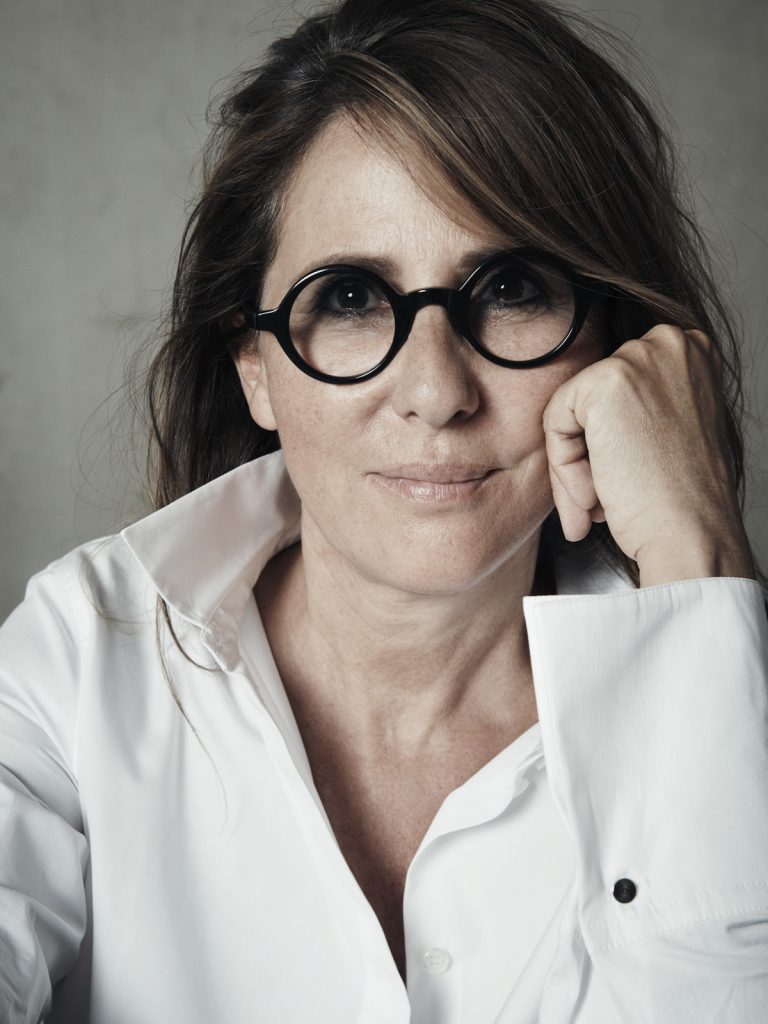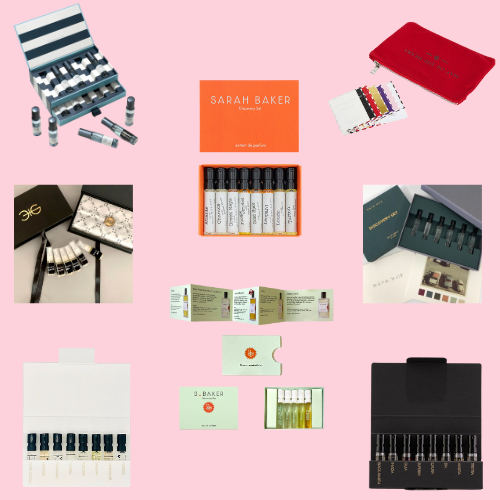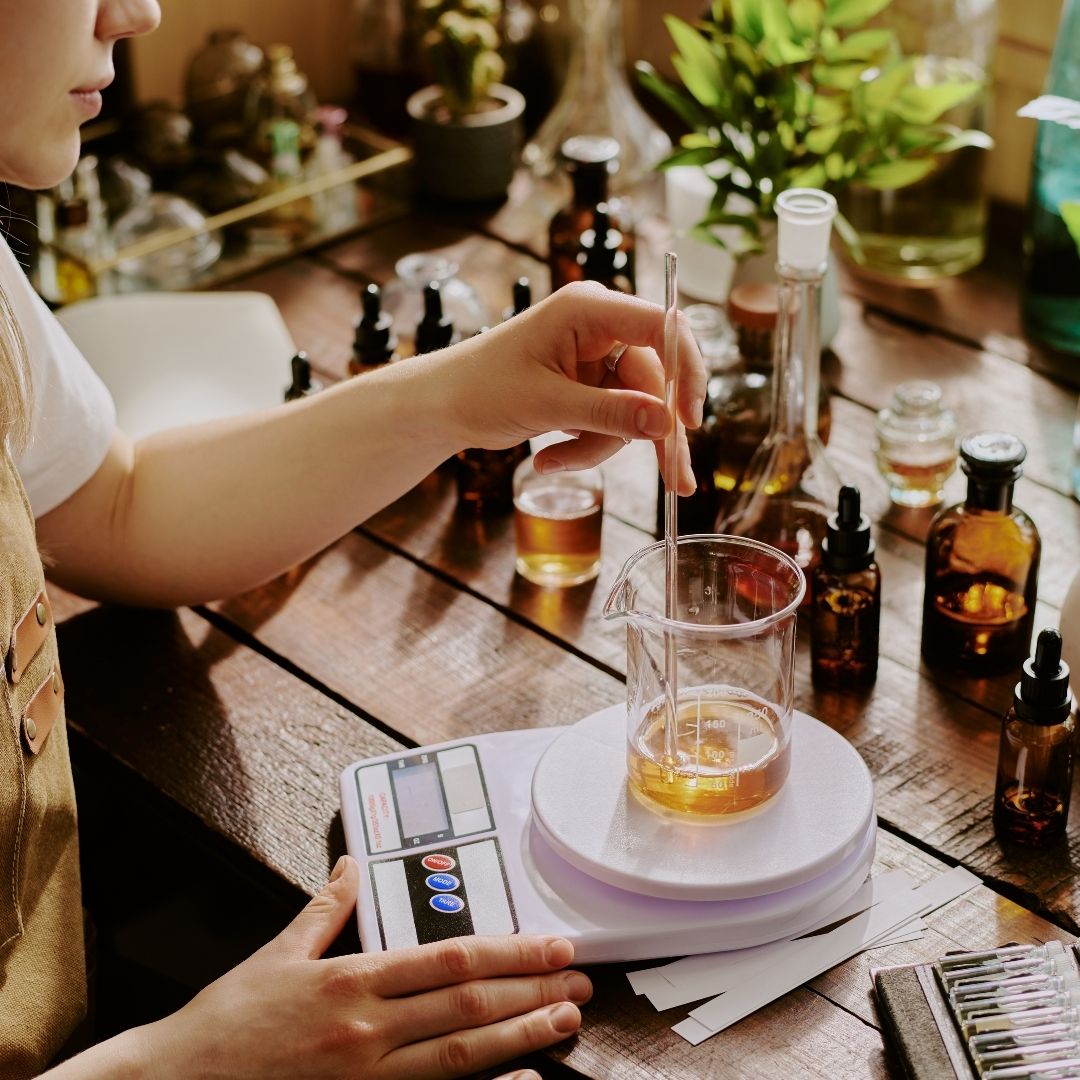Are perfumers born with an innate sense of smell, or is their skill honed through diligent training? While some perfumers may possess a natural sensitivity to scents, the art and science of perfumery often require extensive education and practice. We asked some of the world’s best noses for their top tips on training our own…
Traditionally, aspiring perfumers trained in esteemed institutions, particularly in France. However, the world of perfumery has expanded, welcoming self-taught individuals and those who pursue part-time courses online or in person, guided by experienced perfumers.
Mathieu Nardin, a native of Grasse and part of a new generation of perfumers, emphasises the importance of becoming more aware of the sense of smell. He advises focusing on the emotions and personal feelings evoked by scents to enhance olfactory memory. ‘The most important thing is that people become more aware of what a great sense smell actually is. Taste and sight always seem to come first and people aren’t so focused on their nose. What perfumers do is to close their eyes and focus on that one sense a lot – I mean all the time, not just at work. There are so many studies that say the nose is so closely linked to memories and images, it’s incredibly intense. But you have to explore it deeply.’
‘When you smell something – lavender, a particular perfume, a cooking ingredient – you have to forget what it literally is and instead link it to a personal feeling, whatever it makes you feel. The more you analyse those emotions and link that to personal feelings, the better you become at smelling more and memorising those smells. This is how we learn at perfumery school. It has to be personal, or it has no meaning…’

Esteemed perfumer Christine Nagel agrees, emphasising the importance of olfactory exploration every single day: ‘Be olfactively curious. Smell everything you can, everywhere, every day. Have your nose on high alert!’ And she should know. From the first time she met a ‘nose’, that’s what Christine Nagel knew she wanted to be. So she trained as a research chemist and market analyst, and in Paris, in 1997, was launched on a seriously distinguished career that’s included creations like the blockbuster Narciso Rodriguez for Her (with Francis Kurkdjian), Jimmy Choo Flash, and Guerlain’s Les Elixirs Charnels collection.

Alberto Morillas, who has created some of the world’s most iconic perfumes – Calvin Klein CK One, Kenzo Flower, Bvlgari Omnia, Cartier Panthere de Cartier, Giorgio Armani Aqua di Giò for women – suggests that anyone can improve their sense of smell. Born in Sevilla, Spain in 1950, Morillas describes himself as ‘mostly self-trained’ in perfumery, having begun his career at the School of Beaux Arts in Geneva before joining Firmenich in 1970. He advises, ‘If you train your nose, you’ll be able to make the difference between the main olfactive families. In fact, everyone has his own olfactive memory like a “library of scents”, made of smells you associate with people, places, travels, objects, food, moments of your life…’
‘You can enrich this library by smelling fragrances in store or trying them on skin to live with them,’ he coninues. ‘Some are fresher, some are more sensual, try to put words on what you smell to define the different sensations. Then repeat, repeat ceaselessly. Practice by smelling in blind. Be spontaneous, say everything, feel free to write everything which comes to mind. Time after time, you’ll have your own references and you’ll be able to classify fragrances by main themes, like woody, aromatic, citrus and ambrée. Memory. That’s the most important thing. You need to smell again and again and again the same thing and then mix it with other things and see how it changes. Like cooking – you need to taste all the time to improve your palette and it’s the same with smell.’

Sophie Labbé, a perfumer who spent her childhood between Paris and the Charente-Maritime area of France, encountering contrasting smells that proved particularly inspiring, also offers valuable advice. She studied at IPSICA, Paris’s perfumery school, and at the Givaudan Perfumery School in Geneva for six months. In 1992 she joined IFF as a junior perfumer, where Sophie has worked on fragrances including Bulgari Jasmin Noir and Mon Jasmin Noir, Calvin Klein Beauty, Estée Lauder Pure White Linen, and Salvatore Ferragamo Signorina and Signorina Eleganza.
Discussing how an ordinary person might think about smelling things the way a perfumer does, she said, ‘Open your nose – be aware of all the smells around us. Start with all the everyday smells that you take for granted and then move on to perfumes. You can train your nose. Smell as many perfumes as possible, starting with the classic milestone perfumes which every perfumer studies when they start their perfumery degree. Read as much as you can. There are so many books, and some excellent articles about perfumery.’
These insights from renowned perfumers, shared during interviews for our multi-award-winning magazine, The Scented Letter, where we regularly take a deep dive into how perfumers work through our popular Working Nose series, reveal that anyone can improve their relationship with fragrance. Even if you don’t aspire to become a perfumer, these tips can enrich your daily life.

Top Tips from Perfumers:
-
Be Olfactively Curious: Smell everything around you.
-
Focus on Emotions: Link scents to personal feelings and memories.
-
Build a Scent Library: Regularly smell fragrances and categorise them.
-
Start with Classics: Familiarise yourself with milestone perfumes.
-
Practice Blind Smelling: Test your ability to identify scents without visual cues.
So, as you can see, while some may have a natural inclination towards scent sensitivity, the journey to becoming a perfumer involves rigorous training and a deep connection to one’s olfactory experiences. Whether you’re an aspiring perfumer or simply wish to enhance your appreciation of fragrance, all these practices can totally transform your sensory world for the better. Now, how will you begin improving your own relationship to your sense of smell? We urge you to start today!

Why not begin your own ‘smell training’, as perfumers do, today? You can quickly and (much more) affordably build your own ‘scent library’ by collecting samples, as found in our curated Discovery Boxes – which include an array of scents from all manner of houses, niche, designer, independent, well known, or ultra new to the scent scene. Alternatively, there are a number of Brand Boxes you could begin with, featuring scents across the collections a house has to offer – perfect for comparing and contrasting the perfumers styles. However you choose to begin your nose training – start today, and get your sense of smell primed to enjoy your perfumes even more…
Written by Suzy Nightingale
